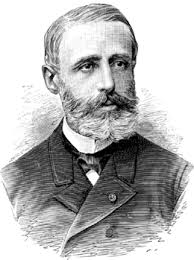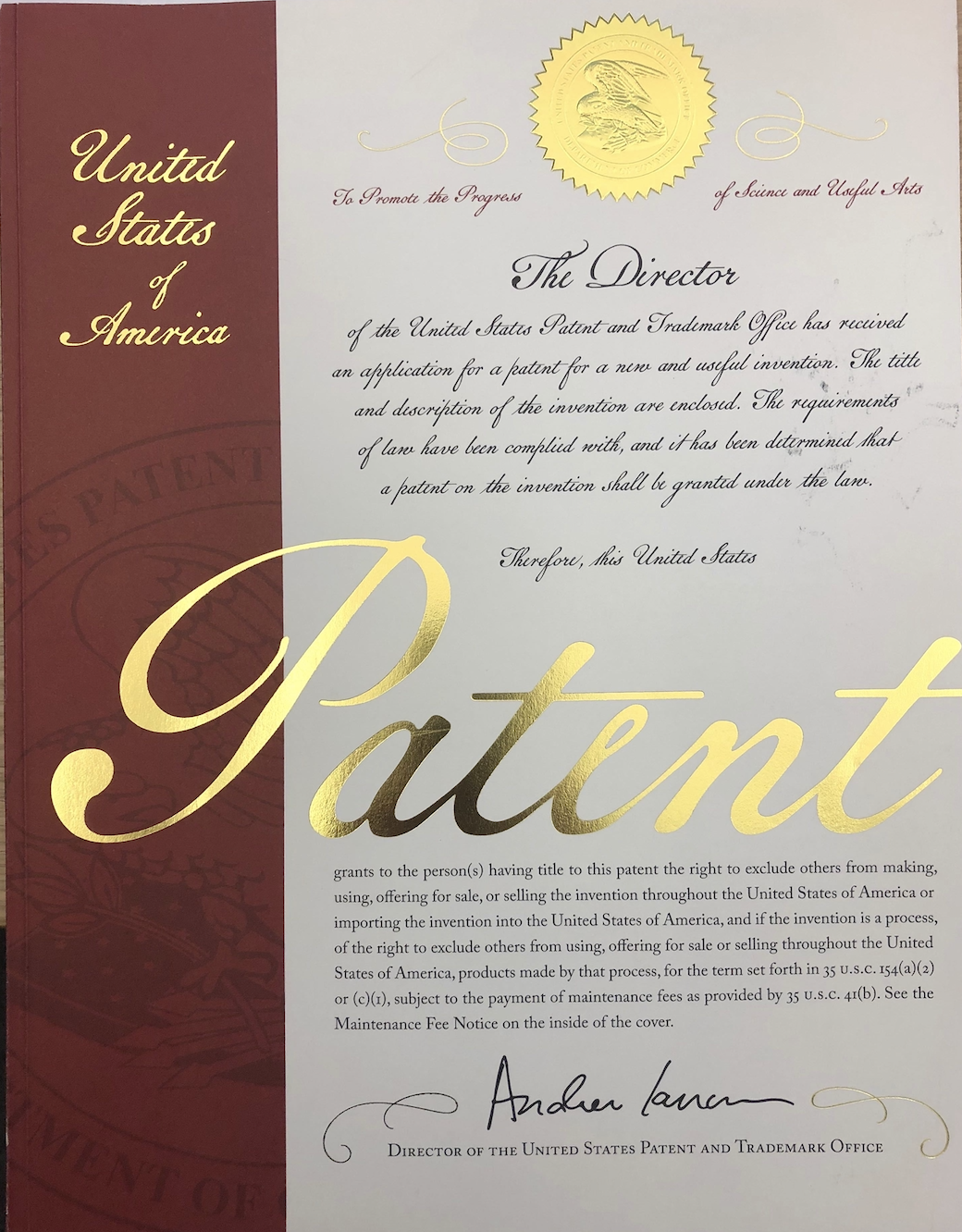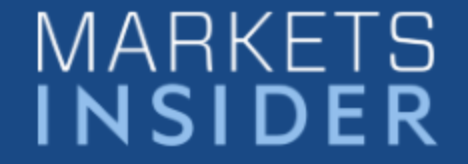Movers & Shakers Interview Chris Mangum, CEO and Chairman of Servato
Remote Battery Management Technology, Internet of Things, and the Future of Telecom
Vishal Sapru (VS), Research Manager for Energy & Power Systems Group had an opportunity to conduct a Movers & Shakers interview with Chris Mangum (CM), CEO and Chairman with Servato.
INTERVIEW
CM - Servato is a leading provider of active battery management solutions to telecom, power, transportation, and solar companies. The company’s mission is to ensure that for industries where batteries serve as a source of backup power, those batteries are managed to always perform as planned. This ensures that power is always available to critical assets during outages.
Servato’s value proposition is driven by reductions in CapEx and OpEx relating to longer battery life, reduced maintenance costs and streamlined operations. Utilizing highly accurate data, proprietary algorithms, adaptive charging and cloud-based visualization software, Servato provides unprecedented insight and control over distributed DC power assets in industrial settings.
Servato’s core patented technology has been in the market for almost five years and has been rigorously tested in the lab and in the field. Today, the technology is deployed across the United States with telecommunications companies ranging from some of the largest carriers in the nation to very small independent telephone companies.
VS - Please describe your product/technology/solution for our readers?
CM - Servato provides a field-based platform for remotely managing backup power (and other) assets, particularly backup batteries. A line of hardware appliances connects to the backup batteries at the site to test, monitor, and manage those batteries. The hardware is capable of reading inputs from other sensors to provide other site data to the customer.
Complementing the hardware is ActiView, Servato’s battery management software. This software compiles and analyzes the battery data for issues and notable trends. These are flagged and presented to the customer as alerts, both within the application software and through connections to the customer’s Network Operations Center (NOC). The customer can use the software to diagnose alarms and in some cases clear the alarms and correct the alarm conditions remotely.
VS - What is Servato's greatest challenge and what strategy is in place to overcome it?
CM - Perhaps the greatest challenge to Servato and other upstarts in the telecommunications industry is coping with the asymmetry between the low risk appetites and long decision-making cycles of Fortune 500 companies and the short-term cash needs and investor expectations of venture-backed startups. Telecommunications companies are not inclined to rapidly change the status quo of operating procedures and processes, and introducing new technology to a chain of command that is used to incremental change is a difficult process. The larger the carrier, the longer the decision cycle typically (absent some catalyst). Our strategy for overcoming this challenge has been to start with smaller company wins and work our way up to the larger carriers, building our infrastructure and our value proposition as we go. If not for smaller carriers embracing new solutions, the industry would be virtually impenetrable to innovation. Unfortunately, this has dissuaded many venture investors from investing in the space and is contributing to the longer-term risk of big carriers losing access to innovation.
VS - What is the unique value proposition of Servato and what are your key competitive differentiators?
CM - Servato is the only battery monitoring/management company that can automatically and virtually disconnect batteries in situ. Servato’s patented technology allows the batteries to be isolated from the charging bus without physically disconnecting them. Thus, the batteries, though resting, are available for immediate backup power during an outage.
The isolation of the batteries is the source of other key differentiating features of the Servato solution. First, isolating and resting the batteries allows for battery tests that cannot be conducted on batteries that are on float charge, such as Open Circuit Voltage (OCV) and automated load testing. These battery metrics are uniquely suited for a suite of other Servato operations. With better battery data, Servato is able to provide a better understanding of real-time battery State-of-Health (SOH) and more accurate predictive analytics.
Second, the ability to isolate the batteries is central to Servato’s unique Adaptive Charging regimen. Servato uses its Adaptive Charging algorithms to ensure that batteries are always fully charged without over-charging them, as is common with continuous float charging (the industry standard). Optimally charging batteries extends battery life, and data suggests that Servato can at least double battery life. Servato has proven the efficacy of this charging methodology and published the results.
VS - What is your strategy in regards to offering best value to customer for the price, compared to similar offerings from competitors? If any?
CM - The battery monitoring/management field is not new. The technology to monitor batteries remotely has been around for some time, but adoption in the industry has been weak. Servato believes this is because the value proposition for monitoring alone – as opposed to monitoring plus remote control capabilities – is not substantial enough to warrant the investment.
Hence, Servato’s philosophy for going beyond monitoring and introducing remote battery management. Servato’s automated and manual management capabilities drive significant improvements to the business case. First, Servato significantly extends battery life, reducing the CapEx investment normally associated with battery deployment and replacement cycles. Second, Servato’s software provides remote control capabilities that mean battery issues can be triaged and in some cases resolved remotely without rolling a truck. No other company in the space provides such a benefit.
Adaptive Charging and the associated predictive analytics open the door for a long list of additional cost savings to battery managers not described above. By providing a solution that goes well beyond the functionality of other vendors, Servato has tipped the business case in favor of deployment.
VS - Continued innovation is the key to success in this growing industry. How is the process of innovation managed at Servato?
CM - Servato is a small team that demands cross-functional efforts from its employees. Sales and account management are involved in product development and engineers are involved in customer deployments and support. The combination of perspectives allows Servato to quickly understand market needs and rapidly integrate them into product development cycles.
Beyond Servato’s own employees, Servato maintains an active customer advisory board. The board consists of subject matter experts at customers who are eager to advise product development. Many of Servato’s most popular features were suggestions from these advisors that have already been incorporated.
VS - What do you want the company to accomplish in the next couple of years and how would you define success for Servato?
CM - As the Internet of Things (IoT) expands, network down time is more and more unacceptable for residential and business consumers who need uninterrupted connectivity to manage devices and services that they rely on in their daily lives and operations. We believe every new telecom site should be equipped with adequate backup power and remote management technology and that the technology should be incorporated into build-outs. We’ll continue to innovate and bring the products to market to fit future deployment specifications.
Though focused on the future, we can’t ignore the hundreds of thousands of legacy sites that are in service today. While many will be upgraded or even replaced over the next decade or two, we hope to provide backup power management to a significant majority of the nation’s existing wireline and wireless sites through retrofits.
Finally, other industries need this technology. Cable companies, railroads, utilities, solar and other types of companies utilize batteries to store power for backup applications. We are already planning pilots in these adjacent markets and expect to have major clients in all of these verticals in the next couple of years.
VS - What is your key value proposition that provides your firm a major competitive advantage over other players in the industry?
CM - As described in questions 4 and 5, Servato’s patented ability to isolate batteries from the charging bus allows us to offer significantly more value than the competition. This value is not marginal, but rather adds significantly to the business case for deploying battery management/monitoring.
VS - Could you elaborate on the acceptance or adoption of your product / technology / solution in the marketplace and are there any positive client testimonials that can be shared with us?
CM - Servato’s solutions are installed in the networks of four “Tier 2” US wireline carriers and we are in discussions with the remaining ones for pilot deployments. These deployments include some customers with hundreds of sites and some still in the pilot/testing stage.
The company is in early discussions with the largest wireless and wireline companies driving towards initial evaluations. There are also a significant number of independent telephone companies of various sizes that have adopted our technology.
Servato is very proud of the happy customers, subject matter experts and industry leaders who are our advocates. Several of those individuals were brought together for a panel at the 2016 ISE EXPO to discuss approaches to backup power (highlights are available on our website). Testimonials from those panelists are also summarized in the attached document and all of the panelists are available for further contact.
VS - Do you foresee the acceptance of your product/technology/solution in the marketplace to have an influence on the direction of the overall market going forward?
CM - Yes. The physical assets in the telecom industry and other industries are extraordinarily difficult to manage and maintain manually. There are simply too many pieces of equipment too geographically distributed to make it feasible.
Geographic distances are exacerbated by other factors. First, the telecom industry’s active M&A landscape means physical assets are often changing hands while the records and personnel with institutional knowledge may not be. Second, industry leaders agree that telecom is an aging industry and that as baby boomers retire there will be a huge knowledge loss. Speak with any operations manager and they will tell you power technicians are particularly difficult to find.
Without automating the monitoring and maintenance of backup batteries, the industry faces a conundrum: expanding infrastructure coupled with a loss of human talent with sufficient knowledge and expertise to service it. We expect the industry to start looking seriously at ways to deepen its ability to triage and solve network site problems remotely. This means going beyond monitoring and alarms and implementing technologies that allow for remote control.
VS - As a general conclusion, what do you think the future holds for such solutions and, more specifically, what role can we expect Servato to play in shaping the future of the industry?
CM - Servato firmly believes that monitoring alone for batteries or other equipment does not provide a sufficient value proposition to support investment by large industrial customers. Servato wants to prove that technology can enable automated and remote management to improve site reliability and reduce maintenance costs. This philosophy can be used to shape the way other remote management technologies are developed within the industry.
VS - What are your company’s marketing and product positioning strategies? Do you plan to form any strategic alliances with other client companies?
CM - Servato works with major industry distributors, VARs, and reps to spread awareness of the solution and its differentiating factors. We are in constant communication with the other relevant equipment vendors in our space including battery and rectifier OEMs, Network equipment OEMs, integrators, and service contractors to the carriers.
VS - What is unique about your company in regards to offering the best and differentiated service experience to customers?
CM - Even when working through distributors and VARs, Servato insists on developing a direct relationship with the customer. This is not just an account management relationship, but a genuine partnership with Servato leading the way for the customer’s management or implementation team to make the most of the solution.
VS - Please describe the importance and focus of your company towards building and strengthening the brand equity of your offering?
CM - First, our emphasis on customer-driven innovation ensures that our customer’s goals align with Servato’s vision for the company, products, and growth. Second, Servato is committed to the big picture that our technology enables: uninterrupted service for highly distributed critical infrastructure like telecom networks. An IoT future requires connectivity without interruptions. Our commitment goes beyond saving our customers money – it is about enabling a seamlessly connected future.
ABOUT CHRIS MANGUM
Chris Mangum is a seasoned leader and entrepreneur with extensive experience in strategy, business development, M&A, innovation and entrepreneurship across a broad range of business models. From 2007 to 2012, Mangum led corporate strategy and business development for CenturyLink where he was part of a leadership team that grew the rural telecom’s market capitalization from $2.5 billion to over $25 billion. While at CenturyLink, he led the development of the company’s growth strategy, championed the firm’s move into the data hosting / cloud space with the $3.2 billion acquisition of Savvis, and incubated highly profitable new revenue streams that represented the future of the business. Prior to CenturyLink, Mangum led an entrepreneurial advisory firm that he co-founded in Atlanta called Venture X Group. At VXG, Mangum helped to launch over 100 entrepreneurial businesses representing investments of over $150 million. Successes include SecureWorks (sold to Dell in 2011 for $650 million), MFG.com (Jeff Bezos portfolio company) and AirBand (nation’s largest B2B wireless broadband provider). Prior to VXG, Mangum led a strategic development team for BellSouth, partnering with such early mobile data pioneers as General Magic, Palm, Compaq and QuickSilver. Prior to BellSouth, Mangum was a military intelligence officer in the US Army. Mangum earned his BA in Psychology from Rhodes College (emphasis in economic behavior and organizational design), and his JD/MBA from Emory University.
If you have any further questions/comments please contact: vishal.sapru@frost.com
About Servato
Headquartered in New Orleans, LA, Servato is a leading provider of active battery management solutions to telecom, power, transportation, and solar companies. Servato’s solutions allow leading companies and infrastructure operators to reduce CapEx and OpEx by extending battery life, reducing maintenance costs and streamlining operations. Utilizing highly accurate data, proprietary algorithms, adaptive charging and cloud-based visualization software, Servato provides unprecedented insight and control over distributed DC power assets in industrial settings. To learn more, please visit: www.servatocorp.com











